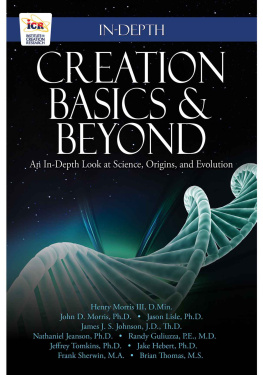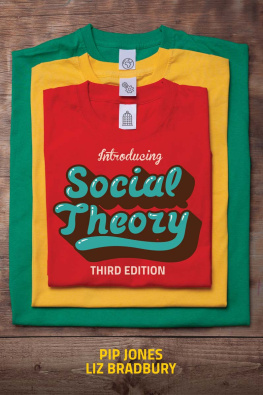ROUTLEDGE LIBRARY EDITIONS:
SOCIAL THEORY
Volume 36
KNOWLEDGE AND POLITICS
KNOWLEDGE AND POLITICS
The sociology of knowledge dispute
Edited by
VOLKER MEJA AND NICO STEHR
First published in 1990
This edition first published in 2015
by Routledge
2 Park Square, Milton Park, Abingdon, Oxon, OX14 4RN
and by Routledge
711 Third Avenue, New York, NY 10017
Routledge is an imprint of the Taylor & Francis Group, an informa business
1990 Volker Meja and Nico Stehr
All rights reserved. No part of this book may be reprinted or reproduced or utilised in any form or by any electronic, mechanical, or other means, now known or hereafter invented, including photocopying and recording, or in any information storage or retrieval system, without permission in writing from the publishers.
Trademark notice: Product or corporate names may be trademarks or registered trademarks, and are used only for identification and explanation without intent to infringe.
British Library Cataloguing in Publication Data
A catalogue record for this book is available from the British Library
ISBN: 978-0-415-72731-0 (Set)
eISBN: 978-1-315-76997-4 (Set)
ISBN: 978-1-138-78615-8 (Volume 36)
eISBN: 978-1-315-76355-2 (Volume 36)
Publishers Note
The publisher has gone to great lengths to ensure the quality of this reprint but points out that some imperfections in the original copies may be apparent.
Disclaimer
The publisher has made every effort to trace copyright holders and would welcome correspondence from those they have been unable to trace.
Knowledge and Politics
The sociology of knowledge dispute
Edited by
Volker Meja
and
Nico Stehr
London and New York
First published 1990
by Routledge
11 New Fetter Lane, London EC4P 4EE
Simultaneously published in the USA and Canada by Routledge
a division of Routledge, Chapman and Hall, Inc.
29 West 35th Street, New York, NY 10001
1990 Volker Meja and Nico Stehr
Typeset by LaserScript Limited, Mitcham, Surrey
Printed in Great Britain by
Mackays of Chatham PLC, Chatham, Kent
All rights reserved. No part of this book may be reprinted or reproduced or utilized in any form or by any electronic, mechanical, or other means, now known or hereafter invented, including photocopying and recording, or in any information storage or retrieval system, without permission in writing from the publishers.
British Library Cataloguing in Publication Data
Knowledge and politics: the sociology of knowledge dispute.
1. Knowledge - Sociological perspectives
I. Meja, Volker II. Stehr, Nico III. Streit um die Wissenssoziologie. English
306.42
Library of Congress Cataloging in Publication Data
[Streit um die Wissenssoziologie. English. Selections]
Knowledge and politics: the sociology of knowledge dispute /
Volker Meja and Nico Stehr, eds.
p. cm.
Translation of: Der Streit um die Wissenssoziologie.
Includes bibliographical references.
1. Knowledge, Sociology of. 2. Sociology-Germany. 3. Sociology-Methodology.
4. Mannheim, Karl, 1893-1947. Ideologie und Utopie.
I. Meja, Volker. II. Stehr, Nico.
BD175.S8713 1990
ISBN 0-415-02881-7
Most of the contributions in this anthology on the sociology of knowledge dispute were first assembled in the German two-volume edition Der Streit um die Wissenssoziologie (Frankfurt am Main: Suhrkamp, 1982). The present English translation is an abbreviated edition, in which several early formulations of a sociology of knowledge (by Wilhelm Jerusalem, Max Adler, Karl Dunkmann, Heinz O. Ziegler, and Paul Eppstein) have been omitted, together with some essays which specifically address the work of Karl Mannheim (Alfred Meusel, Siegfried Marck, Otto Neurath, Horst Grneberg, Hans Barth).
We are grateful to the various translators who provided first translation drafts. We changed most of these drafts considerably in order to achieve some measure of terminological consistency. In spite of serious misgivings about some published translations, we have generally resisted the temptation of editing previously published texts, by an editorial note except where indicated or where a changed passage or word is indicated by square brackets. Missing bibliographical information has everywhere been completed without express comment, and English translations have been listed wherever possible. Some quotations from Mannheims Ideologie und Utopie had to be retranslated, but the corresponding passages from the English translation, Ideology and Utopia, have been indicated in the footnotes in square brackets. In the text, page numbers in parentheses refer first to the 1929 German edition of Ideologie und Utopie, followed by the corresponding page in the enlarged English edition, Ideology and Utopia, translated by Louis Wirth and Edward Shils (London: Routledge & Kegan Paul, 1936).
In spite of repeated efforts, the editors have been unable to locate the copyright holders of the essays by Curtius, Lewalter, and Schelting published in this volume. The literary heirs or trustees of these authors are kindly asked to contact one of the editors.
The manuscript was produced by using the facilities of the University of Alberta Computing Services. We are thankful to Laura Hargrave for text-processing the manuscript, and to David Kettler, Dieter Misgeld, and Kurt H. Wolff for clearing up some translation difficulties. Kurt H. Wolff has encouraged this project all along, and in a sense he initiated it. This book is therefore dedicated to him. We would also like to acknowledge the financial or institutional support of the Social Sciences and Humanities Research Council (Canada), the Memorial University of Newfoundland, and the University of Alberta.
Volker Meja
Memorial University of Newfoundland
Nico Stehr
University of Alberta
In the past one hundred years, the social sciences in Germany have distinguished themselves by several major methodological controversies that are without precedent or parallel elsewhere.1 Three of these controversies are generally recognised as especially momentous. They are the Methodenstreit (dispute on methods) initiated in the 1880s by the economists Carl Menger and Gustav Schmoller;2 the Werturteilsstreit (dispute on value judgments), which was initiated in 1909 at the annual meeting of the Verein fr Sozialpolitik and is associated especially with the names of Max Weber and Werner Sombart;3 and the more recent Positivismusstreit (positivist dispute). The last of these three began with the two presentations on the logic of the social sciences by Karl Popper and Theodor W. Adorno at the 1961 Congress of German Sociologists, and turned especially as a result of the intellectual exchanges between Jrgen Habermas and Hans Albert into a systematic confrontation between critical theory and critical rationalism in which the role of value judgments and the issue of theory formation in the social sciences as well as the problem of the social function of the social sciences were once again taken up and posed anew.4











